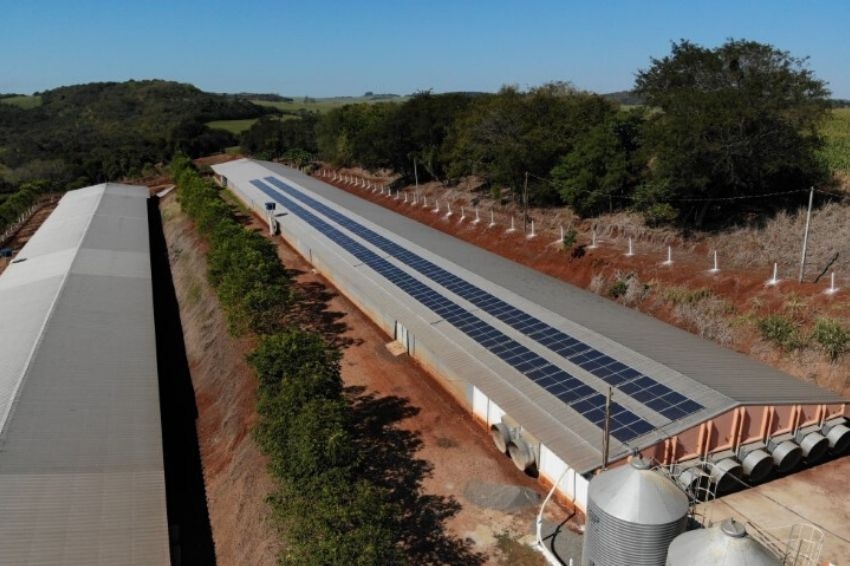The agricultural sector in Brazil is gaining more and more fans of solar energy systems. Poultry farmer Kedley Barbosa decided to install photovoltaic energy in his poultry farm, located in the municipality of Itambé (PR), to save money and promote sustainability in his facilities.
The expectation is to reduce the amount billed by the concessionaire by between 7 and 8 thousand kWh/month and save around R$ 3.6 thousand per month. Considering that the poultry farm's current electricity costs are around R$ 4 thousand per month, the savings on the electricity bill will be around 90%, according to the businessman's calculations.
To implement the project, which has 72.36 kWp, 216 335 W BYD modules, two ECO 27 inverters and a Fronius smart meter were used, as well as a coupling transformer with the local low voltage network.
According to Alexandre Borin, commercial manager of the Solar Energy Unit at Fronius do Brasil, the agribusiness market is developing very quickly in Brazil and rural producers have realized the importance of generating their own energy.

Importance of solar energy
Kedley Barbosa counts on the incentive of the Rural Night Tariff – which guarantees special discounts to farmers on the electricity tariff and the charges that apply to it – but says he is aware of the risk of enacting a new regulatory standard, which could end this benefit. Therefore, according to him, investing in solar energy, in addition to producing your own clean energy and helping the environment, means saving money by reducing your electricity bill, which represents 20% of your enterprise's costs.
Payback
According to the installers, the estimated payback is around five years. “This is because the electricity tariff paid today is relatively low, but if the legislation is changed, the return on investment will be much better than five years”, said Diogo Rosa, executive director of Platão Energia, the company responsible for the aviary project. .
















